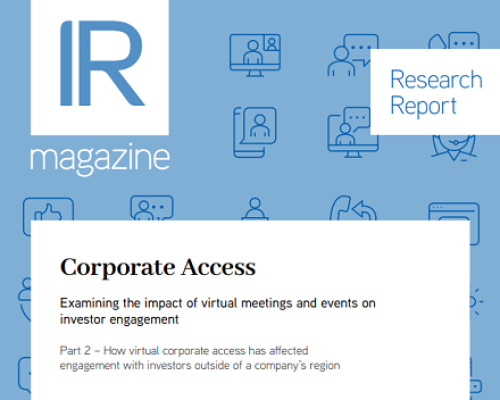Three fifths eliminate a non-North American company as potential investment due to lack of access, BNY Mellon study shows
Most North American investors have discounted a foreign firm as a potential investment due to a lack of corporate access, according to a study by BNY Mellon and market intelligence firm Ipreo.
Sixty percent have avoided investing in a non-North American company because of limited access, while 43 percent of investors in the US and Canada rate their level of access to companies from other continents as ‘average’ or ‘poor’.
More than three quarters of North American investors surveyed also say they have difficulty gaining access to firms outside their continent, particularly those responding who are based in 'secondary cities', such as Philadelphia, Houston or Denver.
The data is part of a survey of 40 investment firms with a combined total of more than $3.1 tn in assets under management, according to a press release from BNY Mellon. The firms allocate an average of 31.5 percent of their portfolios to companies outside North America, and the total equity value they have invested outside of North America increased by 30 percent between 2012 and 2014.
‘Asset growth and greater focus on diversification has placed new strains on the management teams of non-US companies as they try to meet the demands of North American investors,’ says Christopher Kearns, CEO of BNY Mellon’s DR business. ‘To meet these demands, issuers worldwide need to refine their targeting and balance how they serve existing shareholders with the most effective ways to engage new investors. Providing sufficient corporate access is a crucial gateway.’
The survey further shows that 72 percent of investors need to have at least one meeting with a member of a senior management team to help them gain confidence in a non-North American company before they decide to invest. They also require at least one meeting per year (preferably two) once they are invested.










